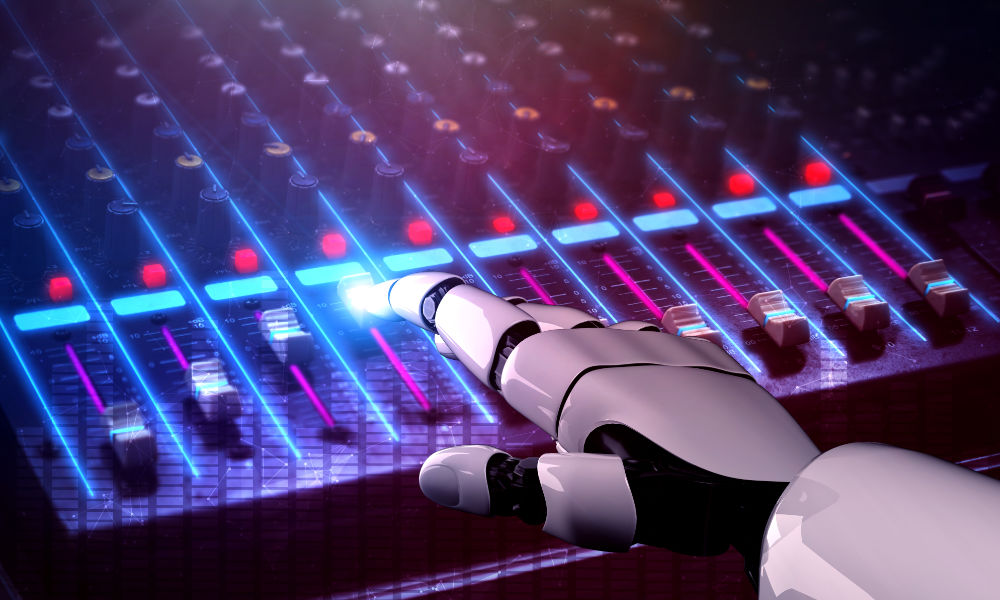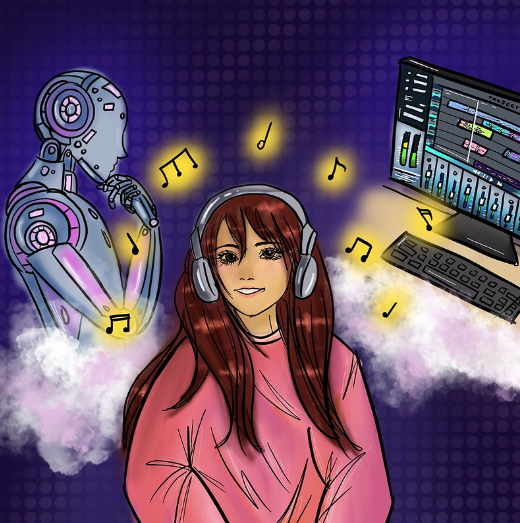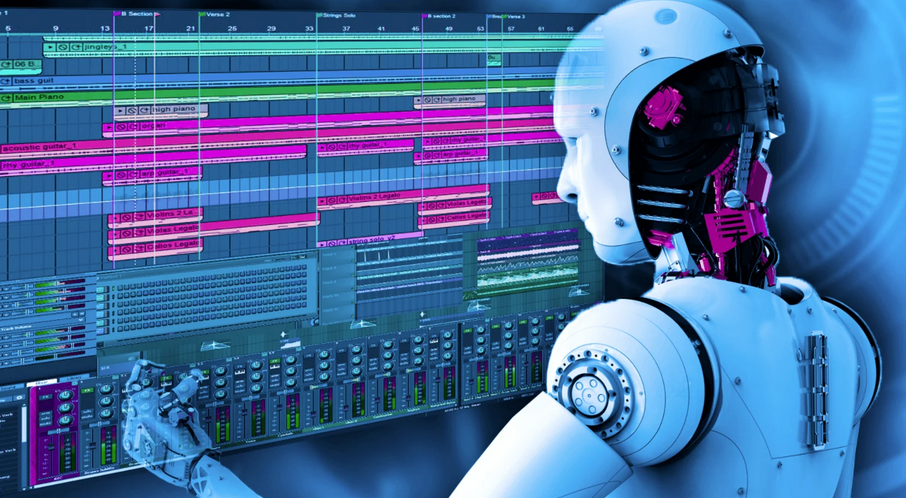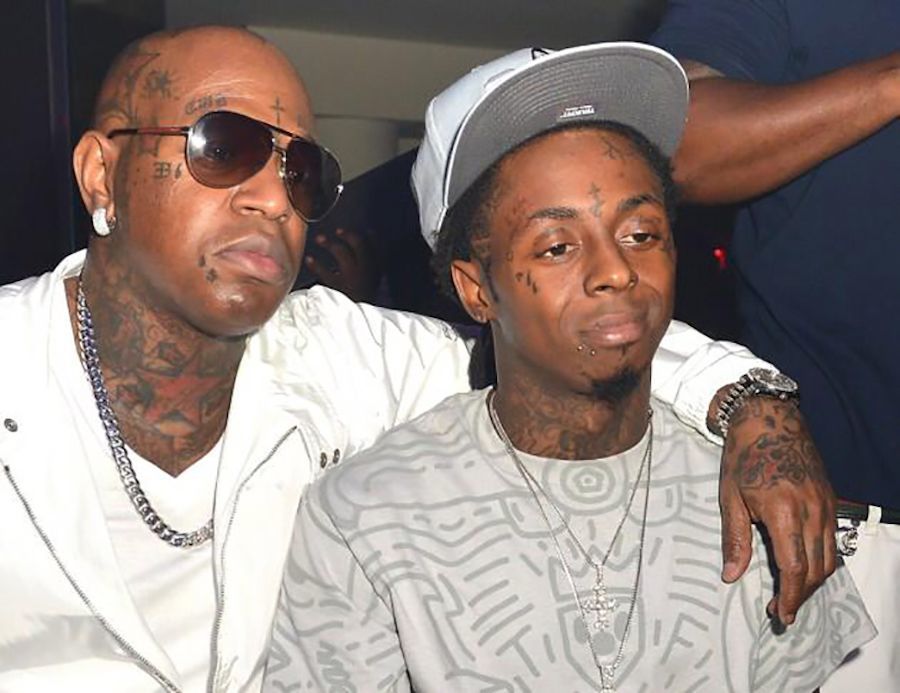Will AI Change The Future Of Music?
In recent years, the rapid advancements in artificial intelligence (AI) have brought about transformative changes across various industries. One such industry that stands on the precipice of a profound transformation is the music industry.
As AI technology continues to evolve and become more sophisticated, its potential impact on the creation, production, distribution, and consumption of music is generating both excitement and apprehension.
From AI-generated compositions and virtual musicians to personalized music recommendations and enhanced production tools, the role of AI in shaping the future of the music industry is a topic that demands exploration and contemplation.
In this article, we delve into the possibilities, challenges, and implications of AI’s influence on the music industry, envisioning a future where human creativity and technological innovation converge in unprecedented ways.
How Rappers Write Rhymes Before the Beat
What Is Artificial Intelligence?
Artificial intelligence (AI) refers to the development of computer systems that can perform tasks that typically require human intelligence.
It involves creating intelligent machines capable of learning, reasoning, problem-solving, and making decisions based on data and algorithms. AI encompasses various subfields, including machine learning, natural language processing, computer vision, and robotics.
Machine learning, in particular, is a key component of AI, enabling systems to automatically learn and improve from experience without explicit programming.
Through AI, machines can analyze vast amounts of data, recognize patterns, make predictions, and adapt to changing circumstances, allowing them to mimic or augment human cognitive abilities.
AI has found applications in diverse domains, such as healthcare, finance, transportation, entertainment, and more, revolutionizing industries and shaping the way we live and work.
Virtual Music Production Software

Do Rap Artists Write Their Own Music?
Will AI Change the Future of the Music Industry?
The future of the music industry is poised for a profound transformation, with the advent of artificial intelligence (AI) playing a pivotal role.
AI has already made significant inroads into various aspects of the music creation and consumption process, revolutionizing how music is composed, produced, discovered, and enjoyed.
From AI-generated compositions to personalized music recommendations and innovative production tools, the potential for AI to reshape the music industry is immense.
However, with this potential also come questions and considerations about the impact on human creativity, artist-audience dynamics, and the evolving nature of musical expression.
Why Rappers Obsessed With Gold Teeth
How Can AI Help Musicians?
Composition and Songwriting
AI algorithms can analyze vast amounts of musical data and generate original compositions or assist in the songwriting process.
By leveraging patterns, harmonies, and structures found in existing music, AI systems can create melodies, chord progressions, and even lyrics that inspire and augment the creative process for musicians.
Production and Arrangement
AI tools can aid musicians in the production and arrangement stages by providing automated mixing and mastering capabilities.
These AI-powered systems can enhance audio quality, balance levels, suggest instrumentations, and streamline the overall production workflow, saving time and improving the final product.
Instrumentation and Performance
Virtual musicians and AI-driven instruments have gained prominence, enabling musicians to access a wide array of sounds and styles.
AI can simulate the sound and performance characteristics of various instruments, granting musicians the ability to experiment and create music without physical constraints or the need for multiple musicians.
Music Recommendation and Discovery
AI algorithms can analyze user preferences, listening habits, and contextual data to provide personalized music recommendations. These systems can introduce musicians to new genres, artists, and songs, enhancing their exposure and potentially expanding their fan base.
Creative Inspiration and Collaboration
AI systems can serve as creative collaborators, providing inspiration and generating ideas based on a musician’s input.
They can help musicians overcome creative blocks, suggest innovative approaches, or even simulate the playing style of specific musicians, fostering new avenues for collaboration and experimentation.
Performance Enhancement
AI technologies can be used during live performances to enhance the experience. Real-time analysis of audience reactions, sentiment analysis, and visual recognition can enable AI systems to generate responsive visual displays or modify musical elements dynamically, creating immersive and interactive performances.
Do Rappers Freestyle Their Tracks?

Will AI Ever Replace Musicians?
The question of whether AI will ever fully replace musicians is a complex and debated topic.
While AI has made significant advancements in various areas of music creation and performance, it is unlikely to completely replace musicians in the foreseeable future.
Music is a deeply emotional and creative art form that often relies on human interpretation, expression, and intuition.
While AI can generate music based on patterns and analysis of existing compositions, it often lacks the nuanced emotional depth and creative spark that human musicians bring to their performances.
The ability to convey personal experiences, emotions, and improvisation remains a distinct human characteristic.
Musicians bring their individuality, cultural influences, and artistic perspectives to their compositions and performances. These qualities contribute to the diversity and richness of music.
AI-generated music, while impressive in its technical capabilities, may lack the unique human touch that comes from individual musicians and their subjective experiences.
Another reason why AI won’t replace musicians in the near future is because of live performances. Live performances involve a dynamic interaction between musicians and audiences, creating a shared experience that goes beyond the mere reproduction of recorded music.
The energy, spontaneity, and improvisation that occur during live performances are difficult to replicate through AI alone.
How Sound Exchange Helps Artists Get Paid
What Music Artists Use AI?
Several music artists have embraced AI in their creative processes and performances, exploring the intersection of technology and music.
Here are a few notable examples:
- Taryn Southern: Taryn Southern, a singer-songwriter and digital storyteller, released an entire album called “I AM AI” in 2018, where she collaborated extensively with AI tools. She used AI algorithms to generate melodies, harmonies, and lyrics, incorporating them into her compositions. The album represents a unique fusion of human creativity and AI-generated elements.
- Holly Herndon: Experimental artist Holly Herndon has incorporated AI and machine learning techniques into her music. In her album “PROTO” released in 2019, she collaborated with an AI program called “Spawn” to create dynamic and evolving compositions. Herndon’s work explores the possibilities of AI as a creative partner and challenges traditional notions of music creation.
- YACHT: The electronic music duo YACHT has experimented with AI in their album “Chain Tripping” released in 2019. They used machine learning algorithms to generate lyrics, melodies, and rhythms, and then incorporated these AI-generated elements into their music. The project aimed to explore the potential of AI as a co-creator and to blur the lines between human and machine creativity.
- Kjetil Falkenberg Hansen: Norwegian composer Kjetil Falkenberg Hansen collaborated with the AI program AIVA (Artificial Intelligence Virtual Artist) to compose a full symphony in 2019. AIVA analyzed thousands of musical scores to generate melodies, harmonies, and orchestration, which Hansen then refined and adapted to create a cohesive symphonic piece.
- Dadabots: Dadabots is a music duo consisting of CJ Carr and Zack Zukowski who specialize in using AI to generate experimental and avant-garde music. They have developed algorithms that can continuously generate and stream music in specific styles and genres, showcasing the potential of AI as an endless source of creative output.
Is AI A Threat To Music?
AI is not inherently a threat to music, but it does present certain challenges and considerations that need to be addressed.
One of the primary concerns, as I mentioned before, is that AI-generated music may lack the emotional depth, artistic intuition, and human creativity that make music a deeply meaningful and expressive art form.
AI algorithms are limited to analyzing patterns and data, which may result in compositions that lack the nuanced qualities that come from human interpretation and personal experiences.
Another major challenge that is talked about is copyright and ownership. The use of AI in music raises questions regarding copyright and ownership.
As AI systems generate music based on existing compositions and patterns, there may be legal and ethical implications concerning intellectual property rights and attribution.
Determining the rightful ownership and authorship of AI-generated music can be complex and require thoughtful consideration.
As AI becomes more sophisticated, it may pose more of a threat, but for now and the foreseeable future artist need not worry about being replaced by Artificial Intelligence.
Rappers That Get Paid A Lot To Perform
How Does AI Enhance Audio Quality?
AI can enhance audio quality through various techniques and applications. One way is through noise reduction and restoration.
AI algorithms can analyze audio signals and distinguish between desired sounds and unwanted noise. Through machine learning and deep learning techniques, AI can effectively suppress background noise, remove artifacts, and restore audio clarity.
This can be particularly useful in scenarios where audio recordings suffer from environmental noise, interference, or low-quality recording conditions.
Another way that AI can enhance audio quality is through audio upscaling and enhancement. AI algorithms can employ advanced signal processing techniques to upscale low-quality audio recordings and enhance their overall fidelity.
By training on large datasets of high-quality audio, AI models can learn to reconstruct missing or degraded audio information, resulting in improved audio resolution, depth, and richness.
Buying The Right XLR Cable For Your Mic

Is There An AI That Can Mix Music?
Yes, there are AI-powered tools and software available that can assist in AI mixing and mastering music. These AI-driven mixing tools aim to automate certain aspects of the mixing process, providing assistance and efficiency to music producers and engineers.
Here are a few examples:
- LANDR
- iZotope Neutron
- Serato Studio
- Accusonus ERA-N
- eMastered
- AimixingandMastering
- LaLaL.AI
- AiMastering
How Hip Hop Producers Lease Beats
Who Owns Music Created By AI?
The ownership of music created by AI is a complex and evolving legal and ethical question that currently lacks clear-cut answers.
The issue of ownership typically depends on various factors, including the specific jurisdiction, contractual agreements, and the nature of the AI’s involvement in the creative process. Here are a few perspectives to consider:
Human Creator: In many jurisdictions, copyright laws generally grant ownership of creative works to human creators.
If an AI system is merely a tool or a tool-assisted collaborator used by a human creator, the human creator would likely be considered the owner of the music. The AI’s involvement would be viewed as a tool or instrument utilized by the human to express their creativity.
AI as a Creator: Some argue that if an AI system generates music independently, without substantial human input or guidance, it could potentially be considered the creator and owner of the music.
This perspective raises complex questions about whether non-human entities can hold copyright and whether AI systems should be recognized as legal persons.
As we progress with the AI technology and there are actual laws created for it and its users, then we will get more of an understanding about ownership.
What AI Does Spotify Use?
Spotify utilizes various AI technologies and algorithms across its platform to enhance user experience, personalized recommendations, and content delivery.
While the specific details of Spotify’s proprietary AI systems are not publicly disclosed.
Spotify’s recommendation system employs AI algorithms to analyze user listening habits, preferences, and contextual data.
This enables Spotify to generate personalized playlists, Discover Weekly recommendations, and the “Made for You” feature, which tailors music suggestions based on individual tastes.
How To Make Money On Instagram As A Rapper
AI can detect voice through a combination of techniques and algorithms that analyze audio signals and extract relevant features. Here are some common approaches used in voice detection with AI:
- Signal Processing: AI systems use digital signal processing techniques to preprocess and transform audio signals into a format suitable for analysis. This may involve filtering, noise reduction, and normalization to enhance the quality of the input audio.
- Feature Extraction: AI algorithms extract various features from the audio signal to capture characteristics relevant to voice detection. Commonly used features include pitch, energy, spectral content, formants, and temporal patterns. These features provide information about the frequency, intensity, and temporal variations of the audio signal.
- Machine Learning and Pattern Recognition: AI models are trained using machine learning algorithms, such as neural networks, to learn patterns that differentiate voice from other sounds. These models are trained on large datasets containing labeled audio samples, distinguishing between voice and non-voice segments. The models then generalize this learning to detect voice in new, unseen audio data.



